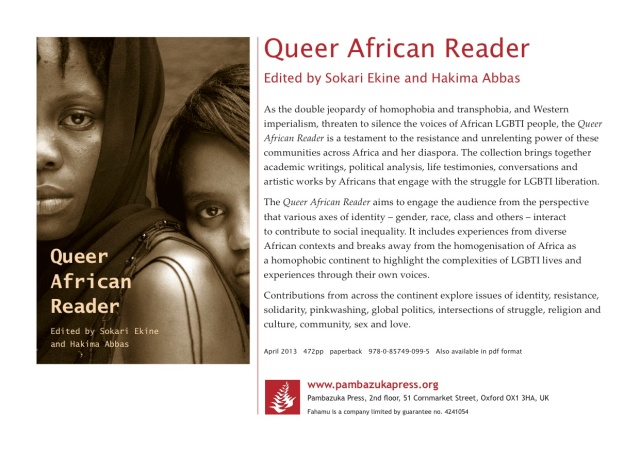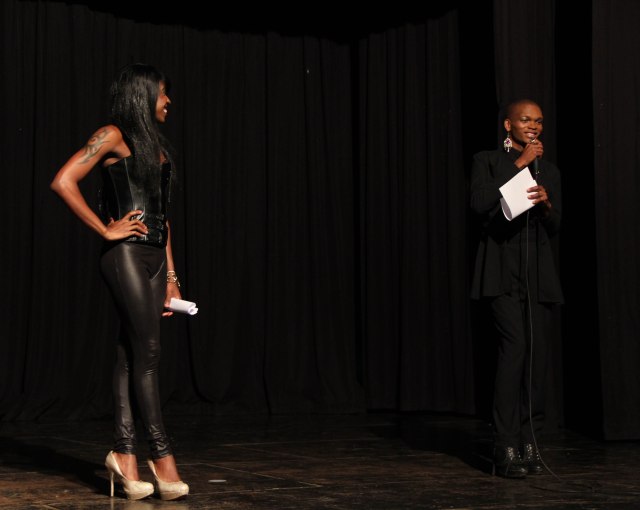Remarks by
Amb. Mustaq Moorad
Regional Director, International IDEA, Africa Programme
at the Workshop on “Strategies to overcome Political Exclusion-Lessons from Southern Africa”
Pretoria, South Africa
Ladies and Gentlemen,
Let me welcome you to Pretoria on behalf of International IDEA.
It is significant that we meet today as we celebrate the International Day for Peoples with Disabilities
Toni Morrison a famous American novelist said and I quote “I always looked upon the acts of racist exclusion, or insult, as pitiable, from the other person. I never absorbed that. I always thought that there was something deficient about such people,” end of quote.
Looking up the term social exclusion or marginalisation, I found that it is a concept used to characterise contemporary forms of social disadvantage and relegation to the fringe of society. Anyone who deviates in any perceived way from the norm of a population may become subject to coarse of subtle forms of social exclusion.
Ladies and gentlemen,
We are very happy to collaborate with our colleagues from our Democracy and Diversity Programme to organise this workshop on “Strategies to overcome Political Exclusion – Lessons from Southern Africa” because we realise that issues of diversity and social exclusion or inclusion are becoming quite prominent in this part of the continent and yet not much is being done to address them.
We also agreed to co-host because three of the countries invited to participate (Botswana, Namibia and South Africa) are amongst the six African Member States of International IDEA. As the saying goes, “charity begins at home” so we felt that as an intergovernmental organisation with a mandate to support democracy worldwide IDEA Member States should be at the forefront of the countries that address this lacunae in the consolidation of democracy in our respective countries. I think the next few days will show that we have a lot of catching up to do.
Although IDEA takes a non-prescriptive approach to its work, it does produce comparative knowledge resources which are used as global public goods to help address some of the challenges countries face.
International IDEA’s cross-cutting work on Democracy and Diversity aims to generate knowledge on inclusive participation, promoting effective diversity management policies and practices. Specifically, IDEA aims to identify and share good practice in managing the challenges confronting customary and democratic governance.
Since 2011 the Institute’s Democracy and Diversity Programme has been developing a knowledge base to use in improving the capacities of democratic and customary governance structures to manage and accommodate diversity based on both case studies and workshops.
The first of the workshops was held in Nepal in 2012 and included participants from Latin America, South East Asia and Africa sharing experiences of overcoming marginalisation based on ethnicity, gender, age, sexual orientation and religion.
This second workshop will build on the knowledge generated at that Workshop, but focus on the Southern African region, aiming to provide insightful examples of success in managing diversity and overcoming political exclusion based on gender, age or sexual orientation.
The workshop therefore seeks to provide a forum for practitioners to share examples of successful practice in facilitating gender equality and young peoples, lesbian, gay, bi-sexual, transsexual and intersexual (LGBTI) progress from exclusion to inclusion in democratic and customary governance.
The outcomes of the workshop will add to our body of knowledge on successful strategies to overcome political exclusion for marginalised groups and will also, hopefully, serve to build alliances between groups experiencing political exclusion from countries in this region and elsewhere.
IDEA also organised a Roundtable recently in The Hague on “Including Minorities and Marginalised Groups in Constitution Building Processes: Experiences, Challenges and lessons” which highlighted the fact that all states have marginalised groups but that it is possible to address the issue through constitutional guarantees.
Coming back to our workshop today and for fear of stating the obvious let me just highlight few facts:
- Of the five or six countries represented here only South Africa has constitutionally guaranteed provisions against discrimination of marginalised groups such as LGBTI although we know that they are continuously harassed.
- As we celebrated World Aids Day on 1 December we were reminded that many of our countries continue to discriminate against people living with HIV/AIDS especially those in same sex relationships.
- Apart from South Africa, women are still grossly underrepresented in positions of leadership in the political and economic field. A study we commissioned assessing manifestos of the main political parties in 34 African countries revealed that none of the manifestos addressed women’s empowerment and yet political parties are the gate keepers of the political process.
- Regarding youth, one would have expected that in a continent where youth comprise almost two thirds of the population there would be policies addressing youth unemployment.
- The growing income inequality gap is exacerbating.
At the international level there are opportunities to address some of the issues as part of the post 2015 Development Framework. However, it remains to be seen if there is the political will to come up with specific targets in this area.
We welcome the Report of the High Level Panel to the UN Secretary General on what needs to be done regarding inclusion and bringing in marginalised groups so that the post 2015 Development framework embodies development for all and thus no one is left behind.
It is encouraging that social inclusion is amongst the three pillars of the sustainable development agenda framework agreed at the Rio +20 Conference.
It is important that different identity groups do not get left behind. Society has to respect and include all identity groups. One cannot be satisfied with the quality of governance if marginalised groups are unable to participate.
The window of opportunity is slowly closing for non-governmental organisations and other civil society organisations to influence the work of the Open Working Group and of the UNGA as these negotiations are normally conducted at an inter-governmental level, the only way we can influence the process is by building coalitions with other groups.
As the UN SG says “in order to leave no one behind and bring everyone forward, actions are needed to promote inclusive societies where all people can contribute and participate in national and local governance.”
As we build these coalitions we also have to ensure that we own the debate by providing local remedies to some of our problems and in this way avoid being accused of being the lackeys of cultural imperialism.
Let me conclude by once again stating how important the issue of political exclusion and marginalisation is to democratic consolidation in our region and that our countries should ensure that no one is left behind. I hope that the next few days will provide the opportunity for you to come up with some strategies and also for building those coalitions.
Thank you.

Activists attending the IDEA workshops on the 3-6 Dec. 2013, in Pretoria.
© Zanele Muholi (2013/12/05)
Participants live and work in various Southern African countries and they are from:
Rainbow Identity (Botswana)
LEGABIBO (Botswana)
Women and Law in Southern Africa (Lesotho)
National University of Lesotho (Lesotho)
Centre for the Development of People (Malawi)
Non-Governmental Organisation Gender Coordination Network (NGO GCN) (Malawi)
National Youth Council of Malawi (Malawi)
Malawi Human Rights Resource Centre (Malawi)
Civil Liberties Committee (Malawi)
Women Across Borders (Namibia)
Namibia Women’s Health Network (Namibia)
Pan African ILGA/PAI (Namibia)
Zambia National Women’s Group (Zambia)
Operation Young Vote/OYV (Zambia)
National Association of Youth Organisations/ NAYO (Zimbabwe)
Coalition of African Lesbians / CAL (South Africa)
180 Studios (Australia)
LaNYT Theatre (England)
Minority Rights Group International (United Kingdom)
Fortify Rights (Thailand)
IDEA (Sweden)
Inkanyiso (South Africa)
The workshops were facilitated by Amanda Harding, a consultant from England/France for IDEA.



























































